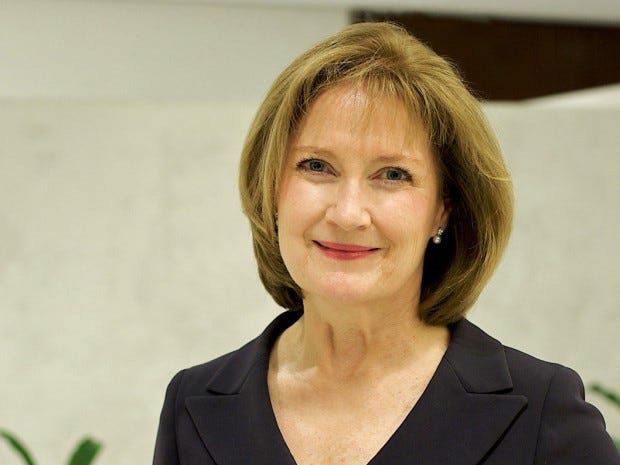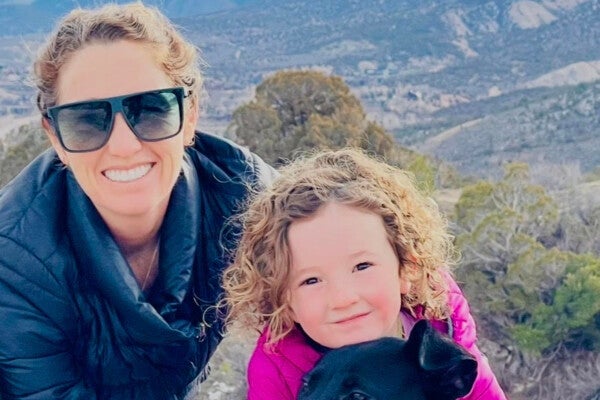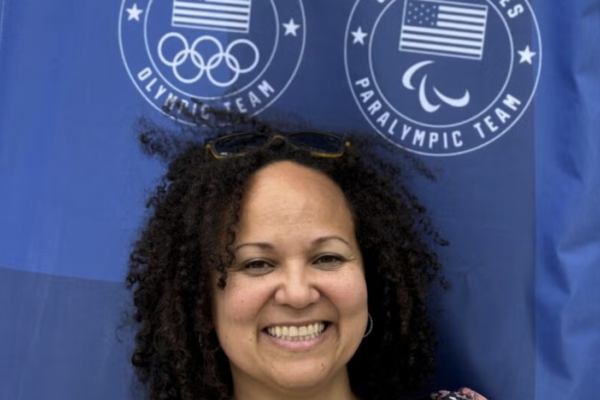A Financial Economist’s Passion for Changing Lives
Joan Lamm-Tennant, a leader in the global insurance industry, is poised to use her expertise in risk management to make affordable insurance available to billions of people who live in poverty

By Molly Dannenmaier
Joan Lamm-Tennant, Ph.D. ‘83, a leader in the global insurance industry, is poised to use her expertise in risk management to make affordable insurance available to billions of people worldwide who live in poverty. She has been named CEO of Blue Marble Microinsurance, which is set to announce its first venture in the fall. Along with a consortium of worldwide insurance industry leaders, she has been working to bring the project to fruition since January, when the group announced its plan to launch 10 micro insurance ventures over the next 10 years.
When Lamm-Tennant entered the doctoral program at The University of Texas at Austin’s business school, she was one of only a handful of women students.
As a student, Lamm-Tennant had an exceptional work ethic and love of mathematics, recalls her friend and frequent research collaborator Laura Starks, McCombs School of Business interim dean.
After earning her doctorate, Lamm-Tennant held tenured faculty positions at St. Mary’s and Villanova universities. She currently holds the Laurence and Susan Hirsch Chair in International Business at the Wharton School of the University of Pennsylvania and serves as global chief economist and risk strategist at Guy Carpenter & Company LLC.
Who are the people your new micro insurance program is intended to help?
There are billions of people who live in poverty yet have an income and are in the formal workforce. They are small-scale farmers, artisans, factory workers, textile workers. They are mainly living with some form of subsistence. They have skills but what they don’t have for the most part is financial inclusion. I’d hate to think about where I would be today without access to credit: I wouldn’t have the education that I have today or be able to own a home. Without access to insurance, many business choices end up being too risky.
I visited a woman in Africa last week. Four years ago, she had a sewing machine and made clothes for the hospital, but the hospital wasn’t very continuous in their payment. Then she was given a bridge loan by one of our banking partners so that she could buy fabric and continue her handiwork even when the government hadn’t come through on their payment to her. That bridge loan gave her the ability to have continuity in her income. So it started with credit, which gave her continuity. Four years later, she owns 80 sewing machines and has 80 employees.
Where does micro insurance come into the picture?
In four years, she expanded her business — and now she needs protection. What if a fire or a flood ruined all her sewing machines? She would be back down to the bottom of the pyramid. So when you think of those stories, you start to really understand financial inclusion and how it could take someone living in poverty and allow them to have sustainability in their income.
How did your education lead to your eventual career in insurance?
After I got my bachelor’s degree in accounting from St. Mary’s University, I went straight to work as an accountant at USAA in San Antonio. I did that from 1974 to 1977 while also pursuing a master’s in business at St. Mary’s. Immediately after getting my MBA, I entered the UT finance Ph.D. program. But my career epiphany was still yet to come.
I knew that accounting was not tapping into my highest potential. I also knew I wanted to pursue analytical research.
Then, during my second year as a doctoral student, in my econometrics class, the “light-bulb” moment happened: Econometrics taught me to see the possibility of a real, truly useful purpose for my passion for mathematics. That realization became the very core of everything I’ve gone on to pursue since.
What role has your UT education played in your success?
Making a commitment to pursue a doctorate in finance at UT was a defining point for me. It was during my years at McCombs that I began to broaden my network of colleagues and mentors and understand the value of having a strong sounding board for the innovative — and sometimes risky — things I was considering. That wide network has really been the door opener for me throughout my career and UT is the place where I truly began to understand the huge importance of mentorship and collaboration.
Did you face any challenges during your time in Austin?
In 1977 when I started the Ph.D. program I was seriously committed to an academic career. I was very fortunate that the university assisted me in getting fellowships and assistantships during my time as a student, so I could really focus on my academic goals. I was a single mom at that time and I also went through a bout with cancer. There were lots of challenges but I had so much support from so many different directions. That daughter, Kristen, is now 36 years old and is a physician working in Massachusetts. She survived and thrived as did my second daughter, Lauren, who’s finishing her MBA at Harvard.
What lessons did your daughters take from your career choices?
I was very passionate about my work. I was an academic for 20 years. I was a tenured professor before I joined industry. I loved research. I loved teaching, and those were their formative years. I juggled a lot and I missed many things. They admired me for being true to myself and true to them, so whenever I missed a swim meet, they understood I wasn’t going to make them all.
I think you serve as a role model to your children, so I don’t think it was anything I did — it was just the life. It was just who I was, and they saw me so happy and so fulfilled.
What advice do you have for current McCombs students?
They should really appreciate the privilege of being at the McCombs School and I mean that with great sincerity. Having access to scholars who are more than scholars — who are people as well. So embrace the program and don’t be passive about it. It’s so important to be as actively involved as possible.
How do you stay involved with McCombs?
I’m working on coming back to McCombs next year to speak to students about how micro insurance works and how it can change lives dramatically. Students here are deeply concerned about those people throughout the world for whom opportunities to better themselves and their community come with devastating risks because the resilience created by the insurance sector is not available. It’s an exciting prospect for me, at this point in my career, to begin opening the doors of economic security to so many people who have never experienced it. McCombs is where it all began for me, so it’s great to be able to come full circle with my story of how the most analytical of career pursuits can be put to the greater good in a very big way.
Originally published in McCombs Today on June 9, 2015.
Editor’s note: This article has been edited to include the company’s name, Blue Marble, which was announced June 15, 2015.
About this Post
Share:


